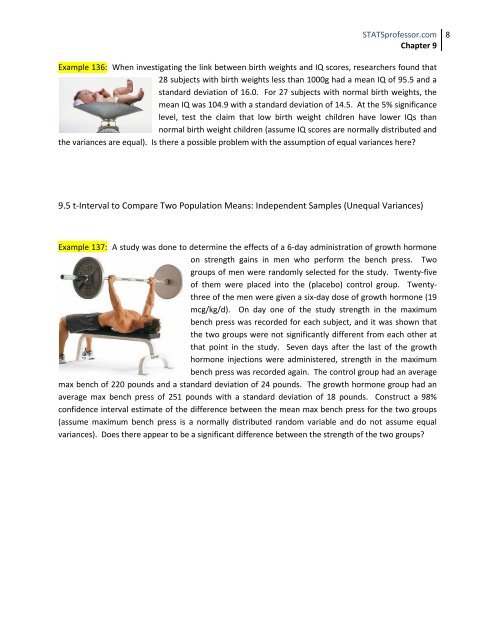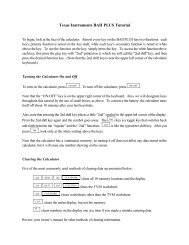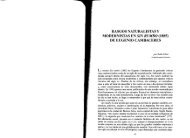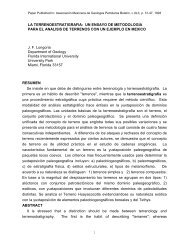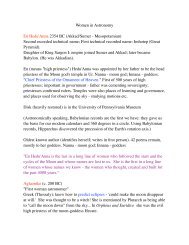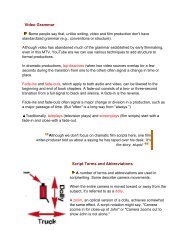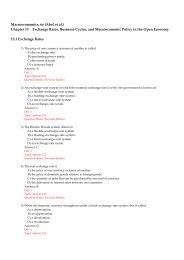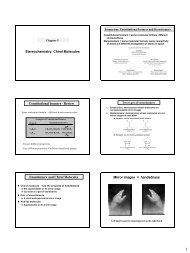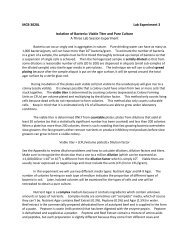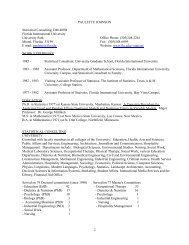Confidence Intervals and Hypothesis Tests: Two Samples - Florida ...
Confidence Intervals and Hypothesis Tests: Two Samples - Florida ...
Confidence Intervals and Hypothesis Tests: Two Samples - Florida ...
Create successful ePaper yourself
Turn your PDF publications into a flip-book with our unique Google optimized e-Paper software.
STATSprofessor.com<br />
Chapter 9<br />
Example 136: When investigating the link between birth weights <strong>and</strong> IQ scores, researchers found that<br />
28 subjects with birth weights less than 1000g had a mean IQ of 95.5 <strong>and</strong> a<br />
st<strong>and</strong>ard deviation of 16.0. For 27 subjects with normal birth weights, the<br />
mean IQ was 104.9 with a st<strong>and</strong>ard deviation of 14.5. At the 5% significance<br />
level, test the claim that low birth weight children have lower IQs than<br />
normal birth weight children (assume IQ scores are normally distributed <strong>and</strong><br />
the variances are equal). Is there a possible problem with the assumption of equal variances here?<br />
9.5 t-Interval to Compare <strong>Two</strong> Population Means: Independent <strong>Samples</strong> (Unequal Variances)<br />
Example 137: A study was done to determine the effects of a 6-day administration of growth hormone<br />
on strength gains in men who perform the bench press. <strong>Two</strong><br />
groups of men were r<strong>and</strong>omly selected for the study. Twenty-five<br />
of them were placed into the (placebo) control group. Twentythree<br />
of the men were given a six-day dose of growth hormone (19<br />
mcg/kg/d). On day one of the study strength in the maximum<br />
bench press was recorded for each subject, <strong>and</strong> it was shown that<br />
the two groups were not significantly different from each other at<br />
that point in the study. Seven days after the last of the growth<br />
hormone injections were administered, strength in the maximum<br />
bench press was recorded again. The control group had an average<br />
max bench of 220 pounds <strong>and</strong> a st<strong>and</strong>ard deviation of 24 pounds. The growth hormone group had an<br />
average max bench press of 251 pounds with a st<strong>and</strong>ard deviation of 18 pounds. Construct a 98%<br />
confidence interval estimate of the difference between the mean max bench press for the two groups<br />
(assume maximum bench press is a normally distributed r<strong>and</strong>om variable <strong>and</strong> do not assume equal<br />
variances). Does there appear to be a significant difference between the strength of the two groups?<br />
8


